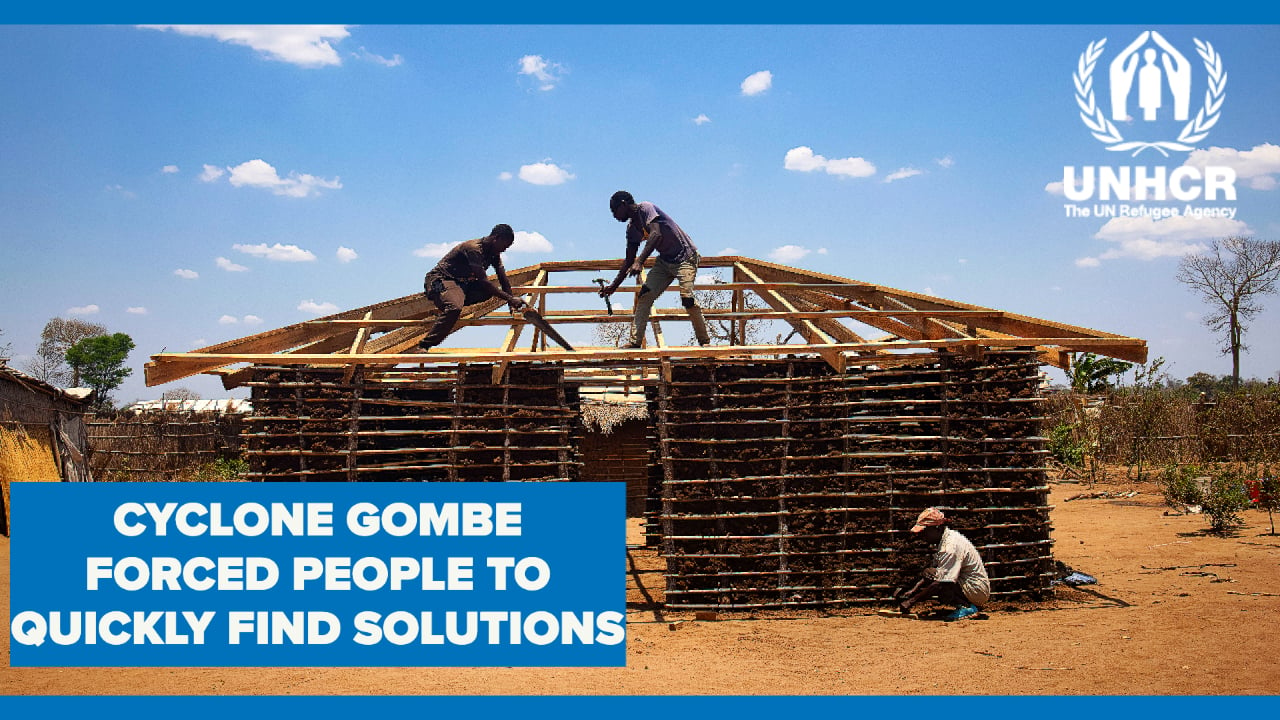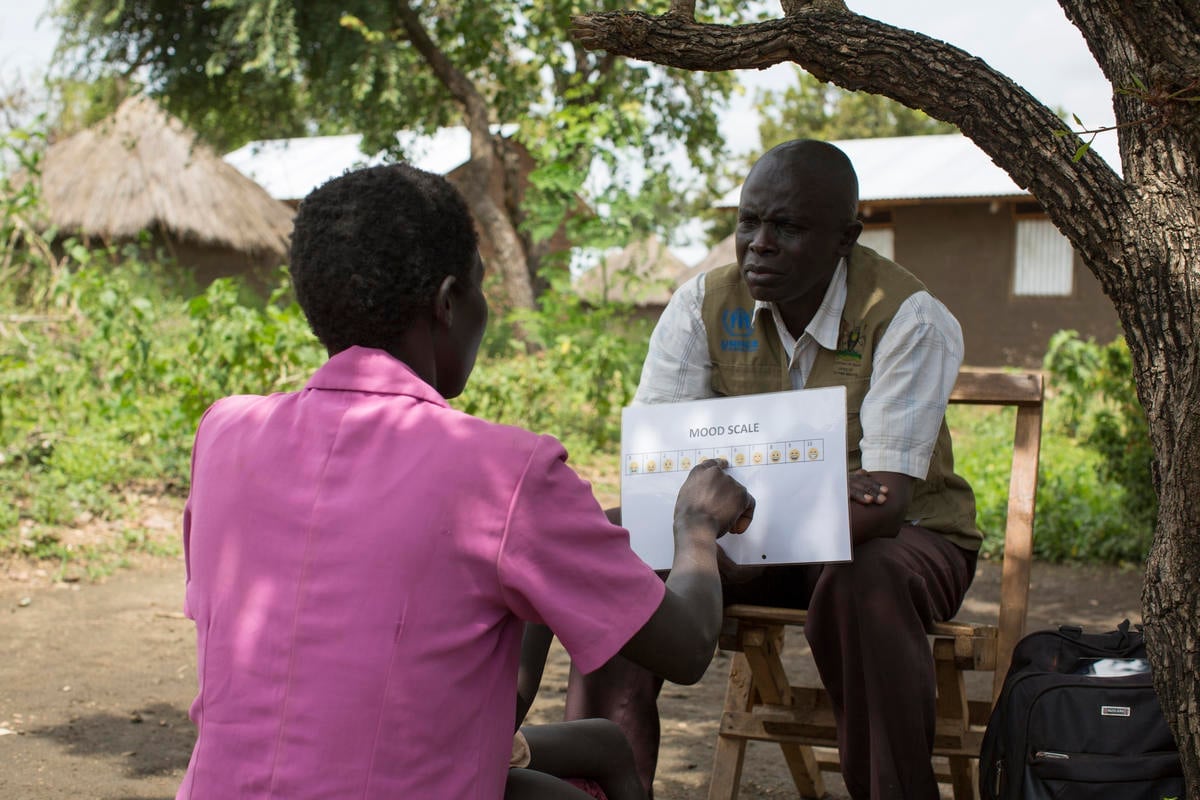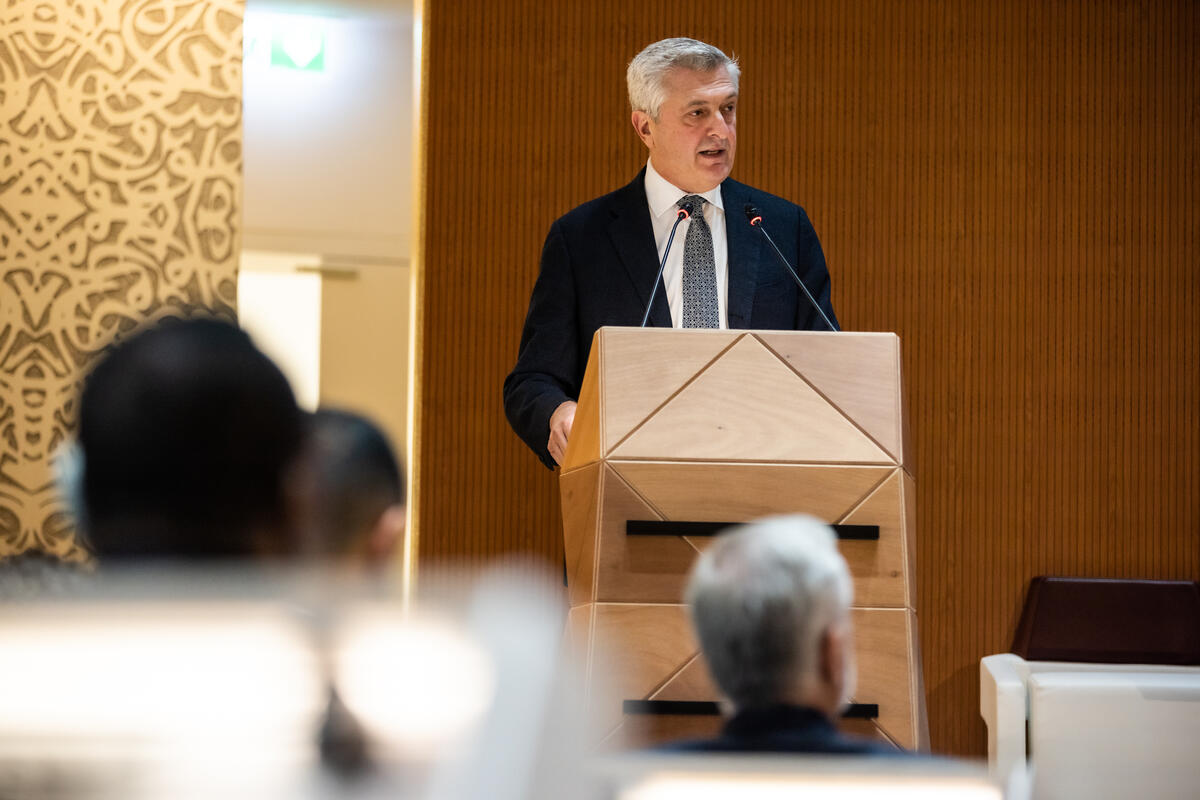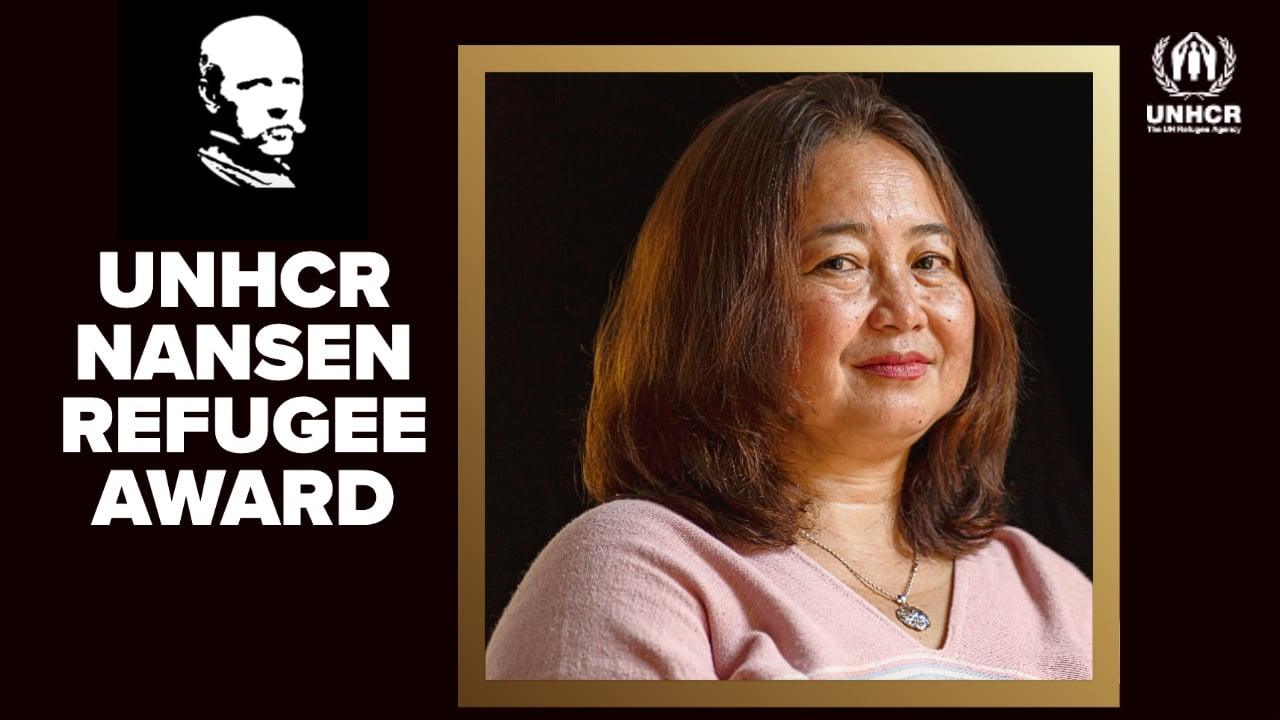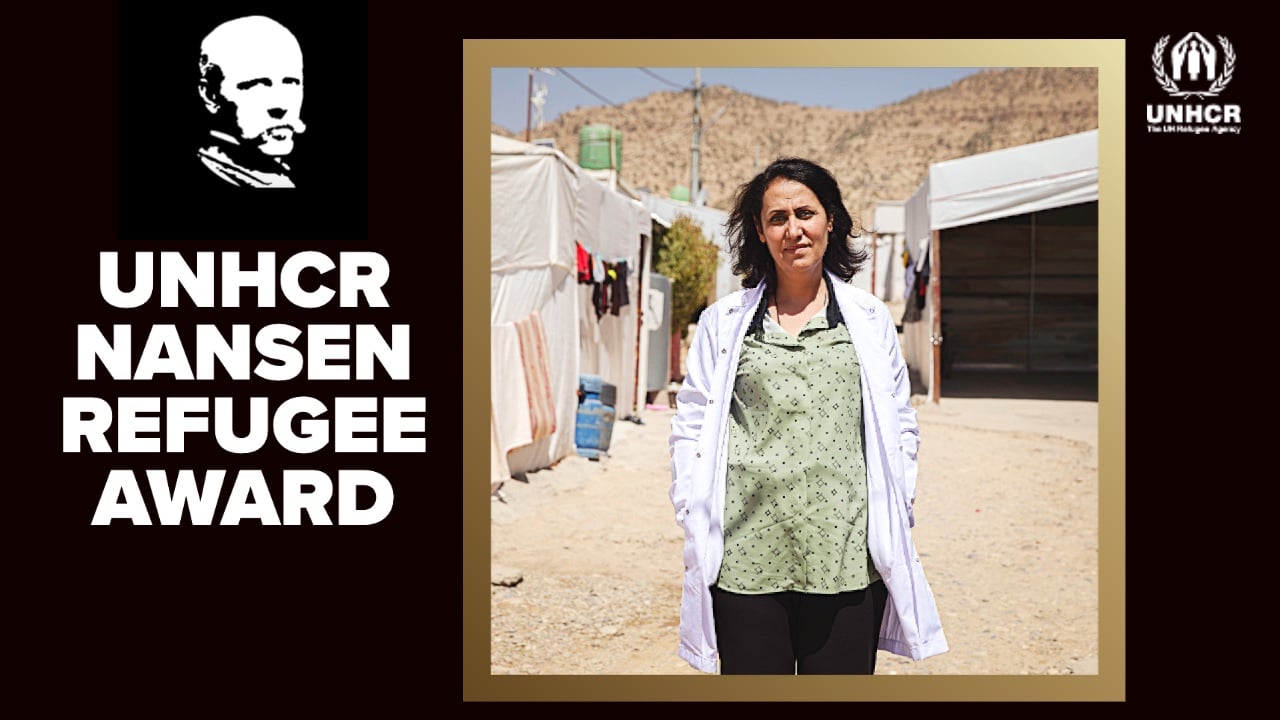UNHCR chief Guterres highlights concerns over internally displaced
UNHCR chief Guterres highlights concerns over internally displaced

GENEVA, October 6 (UNHCR) - Wrapping up UNHCR's week-long Executive Committee meeting Friday, High Commissioner António Guterres said governments were obviously concerned about the plight of the world's 23 million internally displaced people, preserving the institution of asylum amid global migration flows, and the struggle of millions of refugees returning to post-conflict societies.
In a press conference at the conclusion of the annual meeting of his agency's 70-nation governing body, Guterres cited the desperate situation of some 2 million uprooted people in Sudan's Darfur region to illustrate the urgency of addressing the problem of internal displacement. While refugees who cross international borders are covered under an international convention and UNHCR's mandate, internally displaced people (IDPs) who remain within their own countries have little or no protection.
"Sometimes, in a simplistic way, people tend to say that internally displaced persons are just refugees who didn't cross the border," Guterres said. "Unfortunately, things are not as simple as that because if you cross a border you become a refugee, you are protected under international law, you receive the protection of the host country. And there is a clear mandate for UNHCR in order to allow the international community to act on your behalf. But if you are internally displaced, you remain under the authority of your own state. And in many circumstances your state, your government, is not part of the solution - it is part of the problem."
Guterres said member states were particularly worried about the dramatic situation of IDPs in Darfur. He echoed UN Secretary-General Kofi Annan's comment on Thursday that the region was again "on the brink of disaster."
"I would like to say how terrible it is for us humanitarian workers not to be able to deliver effective protection to internally displaced people in Darfur because of the prevailing security circumstances and the massive violations of human rights," the High Commissioner said.
Migration was a second area of concern, Guterres said, "not because we want to become a migration management agency" but because a relatively small proportion of those on the move in the world today are refugees who need protection.
"It is very clear that there is a distinction between a migrant who moves for economic reasons and a refugee who moves because he or she is forced to move due to persecution or conflict," he said. "But we are witnessing more and more mixed population flows in which the majority are migrants ... but some in fact need international protection because they are refugees or asylum seekers, because they are women victims of trafficking, because they might be minors."
Guterres acknowledged that governments have a right to manage their borders and to define their own migration policies. But in an increasingly intolerant international climate, it was also important to ensure that people in need of protection received it and that "measures aiming at curbing illegal migration do not affect the rights of refugees and asylum seekers to have physical access to asylum procedures and a fair treatment of their claims."
A third major concern during the week's debate was the challenge of ensuring that refugees returning to post-conflict societies receive all the help they need.
"Since our last Executive Committee meeting a year ago, more than 1 million refugees went back home - more than 10 percent of the global refugee population was able to go back home," Guterres said. "But unfortunately, in many circumstances, it would be very difficult for them to find adequate conditions of livelihood, to find jobs, to make sure they are able to create a better life for themselves and their families. Return has proven not to be sustainable in many circumstances. Unfortunately, some who go back might become refugees again or leave their countries for economic reasons as illegal migrants, as is happening in so many different parts of the world."
He said the international community must be mobilised to fully support countries emerging from conflict, ensuring they can make it through the difficult transition period between short-term relief and long-term development.
UNHCR's internal reform efforts were also strongly endorsed by member governments, Guterres said. The agency is engaged in a systematic change process aimed in part at lowering fixed costs, including staff and administrative costs, to ensure that maximum resources go to beneficiaries. Possible measures include moving field support staff closer to the point of delivery and relocating some Geneva-based activities. UNHCR has a budget of about US$1 billion a year.
"When we have so many situations where people are suffering and we are not able to deliver all the forms of assistance and protection they need, we have no right to divert even one single penny for the structure of the organisation if that penny is not fully necessary," he said. "Support to the people we care for must always come first."


